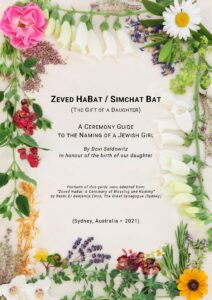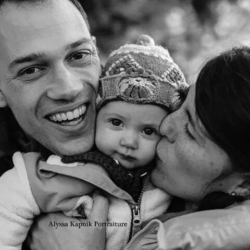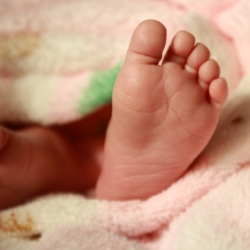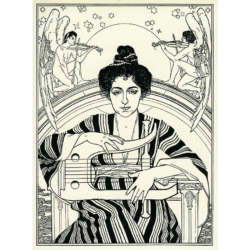DOWNLOAD:
Zeved HaBat / Simḥat Bat (The Gift of a Daughter): A Ceremony Guide to the Naming of a Jewish Girl [was prepared] in honour of the birth of our daughter (Sydney, Australia – 2021).[1] Portions of this guide were adapted from “Zeved HaBat: A Ceremony of Blessing and Naming” by Rabbi Dr Benjamin Elton, The Great Synagogue (Sydney)
PREFACE
This guide is intended to provide an example of how the Jewish ceremony for the naming of a baby girl may incorporate the customs of Jewish communities from around the world. This ceremony guide includes a modified version of the (Sephardic) Zeved HaBat ceremony to acknowledge the Ashkenazi and Chasidic customs relating to the birth of a girl.
Jewish baby naming ceremonies are recognised by rabbis as matters that relate to an admixture of Jewish customs, traditions, personal preferences, and individual circumstances. However, for many Jewish parents, it often seems surprising or even unnerving that there are no “Laws” regarding these matters, and until recently, formal guides on the ceremony of naming a baby girl were difficult to obtain.
This guide is intended to provide parents with an authentic Jewish naming ceremony while acknowledging the differences of community traditions and the legitimacy of personal choice in such intimate and spiritual matters.
In terms of the formality of the service, some parents may desire to have a rabbi lead this ceremony, however, it seems that the Zeved HaBat ceremony was intentionally designed for the direct involvement of the child’s mother and father. It is recommended that the parents familiarise themselves with the blessings and prayers and to take a joint role in leading the ceremony. Similarly, while the wish to host the event in a synagogue is understandable, hosting the ceremony at home has its own set of advantages in terms of comfort and flexibility when caring for a newborn.
The inclusion of the prayers of the Jewish matriarchs is a matter that alludes to a broader concern not to overlook the position of women in the Jewish tradition. The prayers of the Jewish matriarchs should be viewed with consideration that the Talmud considers them to be prophetesses and are therefore co-creators of the Jewish tradition.
Finally, with respect to the Chabad-Lubavitch tradition which emphasises Jewish imagery and symbolism, I have included an Aleph-Bet chart and the Shir Lama’alot mandala/amulet at the end of this guide which may also be printed as a small card to place near the newborn.
Rosh Ḥodesh Kislev 5782
Sydney, Australia
| Source (Hebrew) | Translation (English) | Transliteration (romanized Hebrew) |
|---|---|---|
יוֹנָתִ֞י בְּחַגְוֵ֣י הַסֶּ֗לַע בְּסֵ֙תֶר֙ הַמַּדְרֵגָ֔ה הַרְאִ֙ינִי֙ אֶת־מַרְאַ֔יִךְ הַשְׁמִיעִ֖נִי אֶת־קוֹלֵ֑ךְ כִּי־קוֹלֵ֥ךְ עָרֵ֖ב וּמַרְאֵ֥יךְ נָאוֶֽה (שיר השירים ב:יד) |
The Parents’ Introduction Oh, my dove, in the cranny of the rocks, Hidden by the cliff, Let me see your face, Let me hear your voice, For your voice is sweet And your face is comely. (Song of Songs 2:14) | |
אַחַ֥ת הִיא֙ יוֹנָתִ֣י תַמָּתִ֔י אַחַ֥ת הִיא֙ לְאִמָּ֔הּ בָּרָ֥ה הִ֖יא לְיֽוֹלַדְתָּ֑הּ רָא֤וּהָ בָנוֹת֙ וַֽיְאַשְּׁר֔וּהָ מְלָכ֥וֹת וּפִֽילַגְשִׁ֖ים וַֽיְהַלְלֽוּהָ (שיר השירים ו:ט) |
If the daughter is the firstborn, add the verse: Only one is my perfect dove, The only one to her mother, The delight of the one who bore her. Maidens see and acclaim her, Queens and consorts praise her. (Song of Songs 6:9) | |
Mi sheBerakh – The Naming Ceremony | ||
מִי שֶׁבֵּרַךְ אִמּוֹתֵינוּ שָׂרָה וְרִבְקָה. רָחֵל וְלֵאָה. וּמִרְיָם הַנְּבִיאָה וַאֲבִיגַיִל. וְאֶסְתֵּר הַמַּלְכָּה בַּת אֲבִיחַיִל. הוּא יְבָרֵךְ אֶת הַיַּלְדָּה הַנְּעִימָה הַזּאת. וְיִקָּרֵא שְׁמָהּ בְּיִשְׂרָאֵל (שמהּ) בְּמַזַּל טוֹב וּבְשַׁעַת בְּרָכָה. וִיגַדְּלֶהָ בִּבְרִיאוּת שָׁלוֹם וּמְנוּחָה. לְתוֹרָה וּלְחֻפָּה וּלְמַעֲשִׂים טוֹבִים |
The One who blessed our mothers Sarah, Rivka, Raḥel, and Leah, The prophetesses Miriam and Avigayil, Queen Esther daughter of Aviḥayil, May He bless this beloved girl and let her name in Yisrael be: (announce name) With good fortune and in a time of blessing. May she grow up in good health, peace, and tranquillity. To Torah, Family, and Good Deeds! | |
לְתוֹרָה וּלְחֻפָּה וּלְמַעֲשִׂים טוֹבִים |
Everyone repeats: To Torah, Family, and Good Deeds! | Le’Torah u’le’Ḥupah u’l’Ma’asim Tovim |
וִיזַכֶּה לְאָבִיהָ וּלְאִמָּהּ לִרְאוֹת בְּשִׂמְחָתָהּ וּבְחֻפָּתָהּ. בְּבָנִים וְעשֶׁר וְכָבוֹד. דְּשֵׁנִים וְרַעֲנַנִּים יְנוּבוּן בְּשֵׂיבָה. וְכֵן יְהִי רָצוֹן וְנאמַר אָמֵן׃ |
May her father and mother merit to witness her joyous times, At her wedding day, to see her with children, riches, and honour. May they be live with health into old age. May this be His will and let us say Amen! | |
The Mother’s Blessing of Thanksgiving | ||
בָּרוּךְ אַתָּה ה׳ אֱלֹהֵינוּ מֶלֶךְ הָעוֹלָם הַגּוֹמֵל לְחַיָּבִים טוֹבוֹת שֶׁגְּמָלַנִי כׇּל טוֹב׃ |
Blessed are You, Hashem our God, King of the universe, Who bestows kindness upon the culpable, for He has bestowed goodness to me. |
Barukh atah Adonai Elohenu melekh ha’olam Ha’gomel l’ḥayavim tovot Sheg’malani kol tov |
אָמֵן׃ מִי שֶׁגְמַלְךָ כֹּל טוֹב הוּא יִגְמַלְךָ כֹּל טוֹב סֶלָה׃ |
Everyone responds: Amen! May He who has bestowed beneficence upon you always bestow every beneficence upon you! | Amen! Mi shegamal’kha tov, Hu yig’malekh kol tov, selah! |
יְבָרֶכְךָ ה׳ וְיִשְמְרֶךָ׃ יָּאֵּר ה׳ פָּנָּיו אֵּלֶיךָ וִיחֻנֶךָּ׃ יִשָּא ה׳ פָּנָּיו אֵּלֶיךָ וְיָּשֵּם לְךָ שָּלוֹם׃ (במדבר ו:כד-כו) |
May Hashem bless you and watch over you May Hashem cause His countenance to shine to you and favour you May Hashem raise His countenance toward you and grant you peace (the Priestly Blessing: Numbers 6:24-26) | |
מי שברך אבותינו אברהם יצחק ויעקב, הוא יברך את האשה היולדת (שם) בת (שם האב) ואת בתה הנולדה לה במזל טוב ויקרא שמה בישראל (שם) בת (שם אב התנוקת) בעבור שבעלה ואביה יתן לצדקה. בשכר זה יגדלה לתורה לחופה ולמעשים טובים ונאמר אמן׃ |
An Alternate Nusaḥ (Mi sheBerakh) With Respect to the Ashkenazi practice of naming the daughter at the reading of the Torah: The one who blessed our forefathers, Avraham, Yitsḥaq, and Yaaqov, may He bless the woman who has given birth (Hebrew name) the daughter of (father’s Hebrew name) with her daughter who has been born at an auspicious time and may her name be called in Yisrael (baby’s Hebrew Name), daughter of (baby’s father’s Hebrew name), for her husband, the infant’s father will contribute to charity on their behalf. In reward for this, may they raise her to Torah, marriage, and good deeds. Now let us respond: Amen! | |
Additional Blessings, Prayers, and Divrei Torah There are some who recite either of the following blessings: And if a grandparent or an older sibling is present, they may also recite either of these blessings: | ||
בָּרוּךְ אַתָּה ה׳ אֱלֹהֵינוּ מֶלֶךְ הַעוֹלָם הַטֹוב וְהַּמֵּטִיב׃ |
Option №1: hatov v’hametiv Blessed are You, Hashem our God, King of the universe, who is Good and does good. | Barukh atah Adonai Elohenu melekh ha’olam Ha’tov ve’hamay’teev. |
בָּרוּךְ אַתָּה ה׳ אֱלֹהֵינוּ מֶלֶךְ הַעוֹלָם שֶׁהֶחֱיָנוּ וְקִיְּמָנוּ וְהִגִּיעָנוּ לַזְּמַן הַזֶּה׃ |
Option №2: sheheḥiyanu Blessed are You, Hashem our God, King of the universe, who has granted us life, sustained us, and enabled us to reach this occasion. | Barukh atah Adonai Elohenu melekh ha’olam sheheḥeyanu veqiymanu vehigi’anu lazman[2] Others say “lizman” (לִזְּמַן) hazeh. |
Prayers of Jewish mothers in the Torah | ||
וַתֹּ֣אמֶר שָׂרָ֔ה צְחֹ֕ק עָ֥שָׂה לִ֖י אֱלֹהִ֑ים כׇּל־הַשֹּׁמֵ֖עַ יִֽצְחַק־לִֽי׃ (בראשית כא:ו) |
And Sarah declared, “God has brought me laughter!” (Genesis 21:6) | |
וַתֹּ֣אמֶר לֵאָ֔ה… בָּ֣א גָ֑ד… בְּאׇשְׁרִ֕י… הַפַּ֙עַם֙ אוֹדֶ֣ה אֶת־יְהֹוָ֔ה׃ (בראשית כט:לה) |
And Leah declared “What luck!”, “What fortune!”, “This time I will praise God!” (Genesis 29:35) | |
וַתִּתְפַּלֵּ֤ל חַנָּה֙ וַתֹּאמַ֔ר אֵין־קָד֥וֹשׁ כַּיהֹוָ֖ה כִּ֣י אֵ֣ין בִּלְתֶּ֑ךָ וְאֵ֥ין צ֖וּר כֵּאלֹהֵֽינוּ׃ (שמואל א׳ ב:א) |
And Ḥanah declared “there is no rock like God!” (I Samuel 2:1) | |
שֶׁבַע נְבִיאוֹת מַאן נִינְהוּ שָׂרָה מִרְיָם דְּבוֹרָה חַנָּה אֲבִיגַיִל חוּלְדָּה וְאֶסְתֵּר׃ (מגילה יד א׳) |
In the merit of the Jewish Prophetesses: Who were the seven prophetesses? Sarah, Miriam, Devorah, Ḥannah, Avigaïl, Ḥuldah, and Esther. (Talmud Megillah 14a) | |
The reason why Leah and Raḥel are omitted from this list is because their prophecies are not explicitly mentioned in the Torah. By contrast, in the case of Sarah, not only is her prophecy mentioned, but we know that hers was far greater than that of Avraham. Nevertheless, despite their exclusion, we must conclude that Leah and Raḥel were also prophetesses. (Maharal of Prague, Gur Aryeh Bereshit 29:34) | ||
On the importance of the Aleph-Bet: When a child is born, they cannot not yet distinguish between light and dark, between sweet and bitter. Nevertheless, we must see to it to set before her eyes the letters of the Aleph-Bet, for through the combinations of the Hebrew letters all of creation came into being. (the Lubavitcher Rebbe, 20 Marḥeshvan 5744) |
Source(s)

Notes

“שמחת בת (זבד הבת) | Simḥat Bat: Zeved HaBat (The Gift of a Daughter), a Ceremony Guide to the Naming of a Jewish Girl by Dovi Seldowitz (2021)” is shared through the Open Siddur Project with a Creative Commons Attribution 4.0 International license.










So meaningful, poetic and loving!